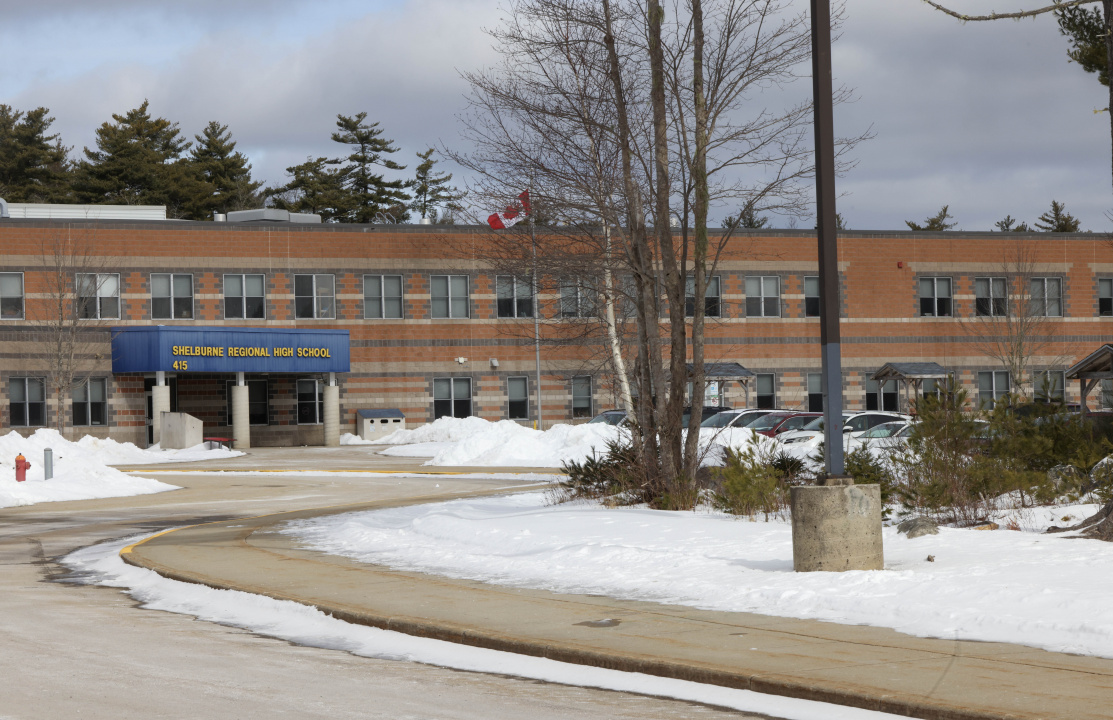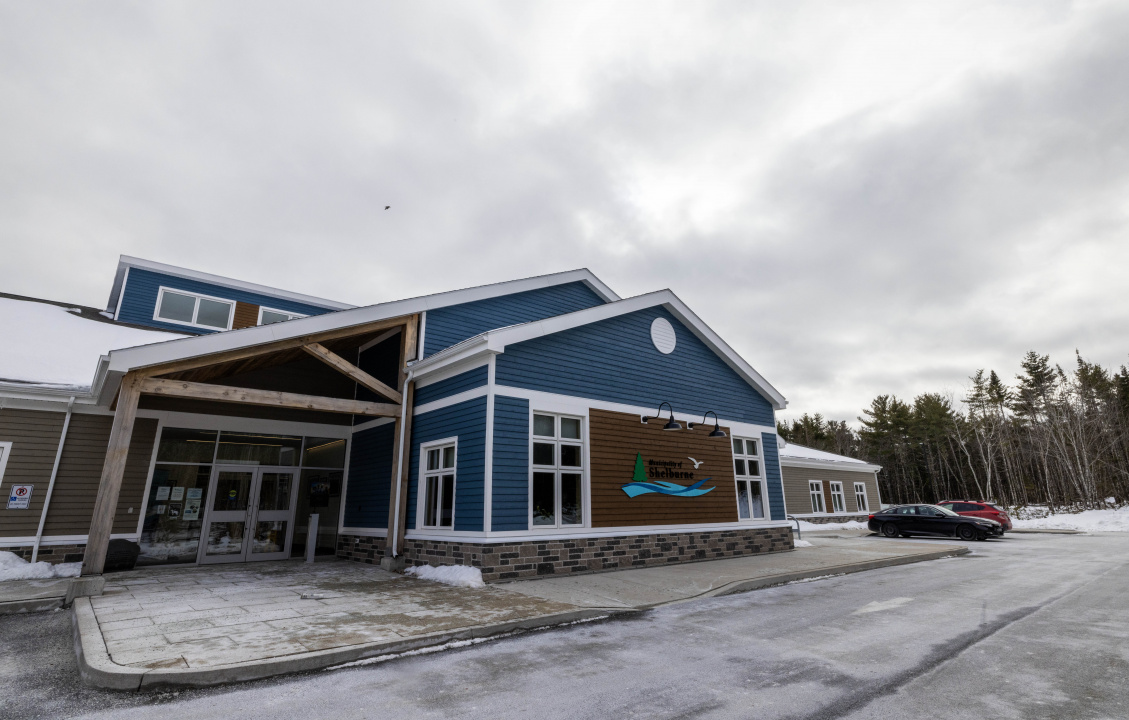Funding Will Help Nova Scotians Access Food

Shelburne Regional High School will host a community garden with funding from the Sustainable Communities Challenge Fund. (Communications Nova Scotia)
The Province of Nova Scotia is investing in community grants for Shelburne County to build a solar-powered greenhouse and for electric vehicle (EV) charging stations and to connect people through the province with emergency food kits.
Nolan Young, Minister of Labour, Skills and Immigration and MLA for Shelburne, announced the funding through the Sustainable Communities Challenge Fund, on behalf of Environment and Climate Change Minister Timothy Halman.
“These projects will help get more food – including locally grown food – to people when they need help the most,” said Minister Young. “These projects also demonstrate local leadership in responding to climate change. As Nova Scotia opens our doors to critical minerals opportunities, we can move to clean energy faster, while also creating good jobs for Nova Scotians which will help improve food security.”
The Community Garden and Foodshare Association of Shelburne County is receiving $142,158 to build a solar-powered greenhouse that will provide fresh vegetables throughout the year to people in need and to the local food bank. The greenhouse will have battery storage and be able to send power back to the grid when it is not being used.
Feed Nova Scotia is receiving $80,000 to create and distribute emergency food kits to help prepare people ahead of storms and other emergencies. The kits will include essential food supplies and helpful resources, like where to find shelter and how to safely store and share food during an emergency event.
The Municipality of the District of Shelburne is receiving $214,200 to install solar panels and EV charging stations at its municipal building in Shelburne. The stations will be available to residents and community transit vehicles.

The Municipality of the District of Shelburne's municipal building will have solar panels and EV charging stations installed with funding from the Sustainable Communities Challenge Fund. (Communications Nova Scotia)
Quotes:
“The grant to build a greenhouse is more than just a structure or a source of fresh produce to share year round. For us, it is a tangible act of trust and a first step toward creating a sustainable source of fresh food for everyone.”
— Michael Kozak, President, Community Garden and Foodshare Association of Shelburne County
“Council is grateful for the provincial funding received for the installation of solar panels on our new municipal building as well as the installation of electric vehicle charging stations at this location. We recognize the benefits of renewable energy and will continue to explore ways to reduce our carbon footprint. We appreciate the partnership with the Province that is allowing us to complete this exciting project.”
— Penny Smith, Warden, Municipality of the District of Shelburne
“Feed Nova Scotia, Halifax Regional Municipality and the Halifax Food Policy Alliance are collaborating on the Emergency Stormkit Project to create nutrient-dense emergency food pantries to support vulnerable residents in emergency preparation. This project furthers the objectives of the JustFOOD Halifax Action Plan through prioritizing local and sustainable food for the kits to retain funding in our local food system and increase community resilience through proactive approaches to climate and food access challenges. The project will also support future emergency planning in both HRM and other communities as the template toolkits, learnings from the project and an environmental scan of how other regions are supporting emergency food preparation will be open resources for others to access.”
— Sue Kelleher, Director of Innovation and Learning, Feed Nova Scotia
“Nova Scotia is becoming more resilient and energy efficient thanks to the leadership of the Municipality of the District of Shelburne, Feed Nova Scotia and the Community Garden and Foodshare Association of Shelburne County. With funding from the Sustainable Communities Challenge Fund, we are pleased to support the District of Shelburne’s work in installing new electric vehicle charging stations and solar panels, Feed Nova Scotia’s work in strengthening community emergency preparedness and the Community Garden and Foodshare Association’s carbon-negative greenhouse. These diverse projects highlight the dedication of Nova Scotians responding and adapting to our changing climate.”
— Juanita Spencer, CEO, Nova Scotia Federation of Municipalities
Quick Facts:
- the government created the Sustainable Communities Challenge Fund in 2021 as part of the Environmental Goals and Climate Change Reduction Act, its legislated commitment to reduce greenhouse gas emissions, respond to climate change, transform how Nova Scotians produce and use energy, make homes and buildings energy efficient, and more.
- the program provides grants to municipalities, non-profit and community organizations, post-secondary institutions and Mi’kmaw communities to help them respond to and prepare for climate change impacts, and to reduce greenhouse gas emissions.
Additional Resources:
More information on the Sustainable Communities Challenge Fund is available at: https://nschallengefund.ca/
News releases about the fund and related projects: https://news.novascotia.ca/search/all?field_topics=228
Environmental Goals and Climate Change Reduction Act: https://nslegislature.ca/sites/default/files/legc/statutes/environmental%20goals%20and%20climate%20change%20reduction.pdf
Our Climate, Our Future: Nova Scotia’s Climate Change Plan for Clean Growth: https://climatechange.novascotia.ca/sites/default/files/uploads/ns-climate-change-plan.pdf
Weathering What’s Ahead: Climate Change Risk and Nova Scotia’s Well-being: https://climatechange.novascotia.ca/climate-impacts